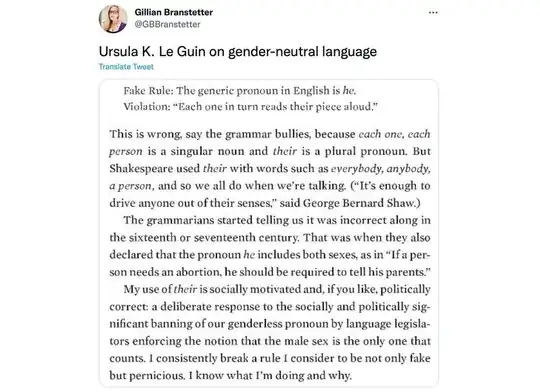The question could be answered by comparison of the King James Bible (1611 version) with the Wycliffe Bible (1382) but would require some considerable research.
Here are two examples I found myself, which indicate that 'they/their/them' was not used singularly prior to the 16th century:
2 Kings 14:12
1611 every man to their tents
1382 ech man in to his tabernaclis
Philippians 2:3
1611 better than themselves
1382 heiyer than hym silf
Source Textus Receptus Bibles
Care would need to be taken in certain passages since the Wycliffe is translated from the Latin Vulgate whereas the KJV is translated from the Koine Greek text and the Masoretic Hebrew text but in these two examples above, the sense is the same, despite different source texts, and the comparison is valid in English.
The Oxford English Dictionary has traced the singular 'they' back to 1375 and 1450 but this does not suggest that it was common usage, only that it is seen in example:
a. With an antecedent that is grammatically singular, but refers collectively to the members of a group, or has universal reference (e.g. each person, everyone, nobody).
Sometimes, but not always, used to avoid having to specify the gender(s) of the individual(s) being referred to; cf. sense A. 2b.
a1375 (▸c1350) William of Palerne (1867) l. 2179 Hastely hiȝed eche wiȝt..til þei neyȝþed so neiȝh..þere william & his worþi lef were liand i-fere.
c1450 (▸?c1400) Three Kings Cologne (Cambr. Ee.4.32) (1886) 6 Noman was hardy in all þat countrey to sette aȝens hem, for drede þat þey hadde of hem.
